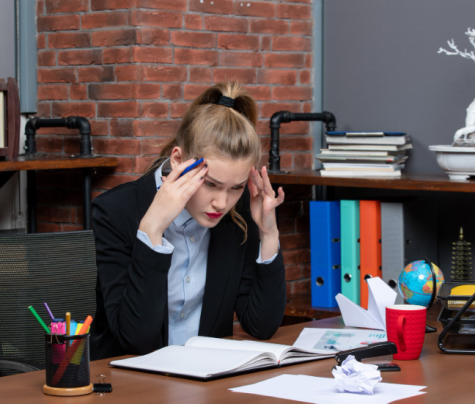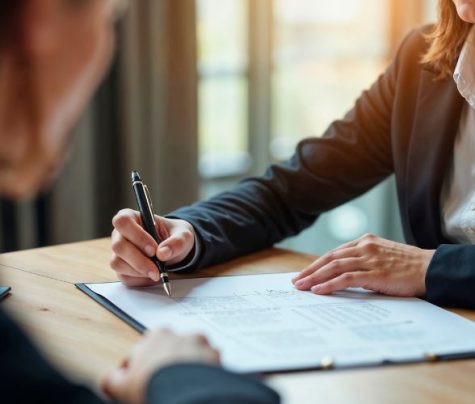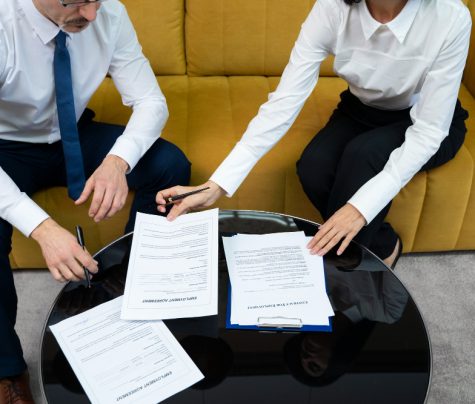
Accidents do not come with prior warning signs. They are sudden and will hardly give you any time to react. While some accidents are minor and can be brushed off. On the other hand, the accident could be outright fatal.
However, one thing that is common in all these situations is the flooding of your body with adrenaline. Adrenaline activates our body’s fight-or-flight response. However, one small caveat is that it stops our brain from functioning, and we end up doing things unthinkingly.
Always remember that after such situations, your reactions matter the most. It might sound like an overstatement, but in some cases, it even decides your fate or future.
While professional legal firms like Fenimore Injury Law can help you in getting the best assistance, there are some things that you must ensure you do right after such an incident.
In this article, we will be taking a moment to understand that aspect. In other words, learn about things to do after an accident.
What Should You Do After An Accident?
The first hour of an accident is very crucial. Your reaction and response in the very first hour of such an incident will determine whether you will walk away with some injuries or a legal dispute. Hence, it is crucial to be aware of the following three points that we would like to highlight.
To know more about things to do after an accident is like having a checklist to save yourself in times of need. In this section, we will examine both the legal and medical aspects to consider after an accident.
Then again, every accident is different. Please use your common sense to determine if the following approach is suitable for your case.
1. Prioritize Safety and Get Medical Attention
You are not Rambo or the T-800 Terminator, so you don’t have to be tough. Many people tend to take on the mantle of a savior after such an incident. While it is a noble thought, it can exacerbate situations.
As soon as the collision happens, do not react. Sit and assess the severity of the situation and take a breather. Once you do that, ensure you are fine and in a state to help others. This is very important.
The next thing you will do is ensure that everyone in your car is also fine. Check for smoke and look for sparks. If there is a strong stench of fuel, it is advisable to step out of the vehicle and move away a few feet.
Once everyone is secured in your car, make an effort to check on the other vehicle you collided with. While it is common for the person you might save to end up suing you, be a human first and not think about the legal implications.
Once everyone is safe and secure, it is time to call the emergency service. This can be a taxing thing, as explaining the situation tactfully is quite important. Please do not incriminate yourself or say anything that could be used in court.
Finally, do not skip your trip to the ER. Certain high-speed injuries, like whiplash or concussions, do not become visible after weeks. Therefore, do not skip the journey. Also, get a detailed record of all the injuries you have sustained, as that can be one of your weapons in the court of law.
2. Document Everything You Can
Once you’re safe and have received medical help (or while you wait), start gathering evidence. The more details you capture, the better your chances of proving what happened if questions arise later.
Use your phone to:
- Take photos of the scene from multiple angles
- Capture any property damage, injuries, or environmental hazards.
- Get snapshots of license plates, nearby signs, or conditions like poor lighting or slippery surfaces.
Also, write down:
- Names and contact info of anyone involved (including witnesses)
- What happened, in your own words, while it’s fresh in your mind
- Any comments made by others at the scene that could be relevant
Even if the incident seems straightforward, documentation is what backs up your version of events and can protect you if someone else changes their story later.
3. Report the Incident and Stay Off Social Media
No matter how minor the accident might seem, always report it to the proper authorities. That might mean calling the police, informing a store manager, or filing a workplace incident report.
Doing this ensures that there is an official record, which helps establish that the event actually occurred and when. If the situation leads to a claim or legal action, a lack of documentation can seriously hurt your credibility.
And here’s something many people overlook: avoid posting anything about the accident on social media. You might think you’re just venting or letting friends know what happened, but even an innocent comment or photo can be taken out of context. Insurance companies and attorneys often monitor posts, and something you share publicly can be used against you later.
Instead, keep your conversations private, stick to the facts, and only discuss details with trusted professionals or your attorney.
Why These First Steps Matter
Knowing about the things to do after an accident is not just about saving yourself from a legal spat. It is also about ensuring the homeostasis of your life. An accident can lead to mounting medical bills, loss of work, and even jail time.
All of these things can really disrupt your life and distress you to a new level. Therefore, we hope that this listicle has helped you become educated on how to react after an accident. While some might say that being prepared for this is just being overly cautious, others argue that it’s being low-key paranoid.
However, it is the difference between life and death. Therefore, please be mindful and not selfish. Otherwise, you can only hope to get out of the situation unscathed.
Read Also:
- What Compensation Can You Recover After a Motorcycle Crash?
- How To Maximize Your Workers’ Compensation Settlement
- Evidence Used To Prove A Personal Injury Claim











0 Reply
No comments yet.